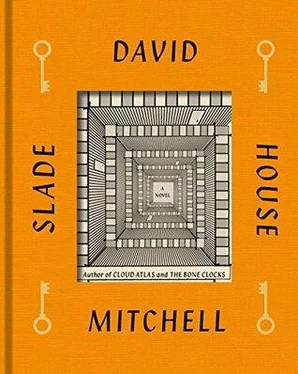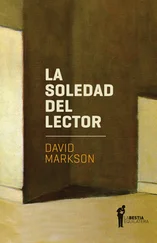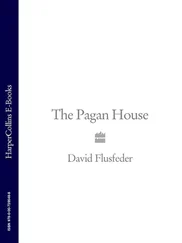David Mitchell - Slade House
Здесь есть возможность читать онлайн «David Mitchell - Slade House» весь текст электронной книги совершенно бесплатно (целиком полную версию без сокращений). В некоторых случаях можно слушать аудио, скачать через торрент в формате fb2 и присутствует краткое содержание. Год выпуска: 2015, Издательство: Random House, Жанр: Современная проза, на английском языке. Описание произведения, (предисловие) а так же отзывы посетителей доступны на портале библиотеки ЛибКат.
- Название:Slade House
- Автор:
- Издательство:Random House
- Жанр:
- Год:2015
- ISBN:нет данных
- Рейтинг книги:3 / 5. Голосов: 1
-
Избранное:Добавить в избранное
- Отзывы:
-
Ваша оценка:
- 60
- 1
- 2
- 3
- 4
- 5
Slade House: краткое содержание, описание и аннотация
Предлагаем к чтению аннотацию, описание, краткое содержание или предисловие (зависит от того, что написал сам автор книги «Slade House»). Если вы не нашли необходимую информацию о книге — напишите в комментариях, мы постараемся отыскать её.
) comes a taut, intricately woven, spine-chilling, reality-warping short novel. Set across five decades, beginning in 1979 and coming to its electrifying conclusion on October 31, 2015,
is the perfect book to curl up with on a dark and stormy night.
Slade House — читать онлайн бесплатно полную книгу (весь текст) целиком
Ниже представлен текст книги, разбитый по страницам. Система сохранения места последней прочитанной страницы, позволяет с удобством читать онлайн бесплатно книгу «Slade House», без необходимости каждый раз заново искать на чём Вы остановились. Поставьте закладку, и сможете в любой момент перейти на страницу, на которой закончили чтение.
Интервал:
Закладка:
To follow this Fred Pink’s trail of breadcrumbs you have to blindfold your own sanity. “Meaning, a suasioner can also make a man jump to his death?”
“ ‘Xactly so, Miss Timms.”
“But Cantillon, in your narrative, had been a loyal friend and protector.”
“ Had been, yes; but then he became a threat. A kind of apostate, too: the Occult’s like any religious order — or any bunch of extremists, come to that. It’s all beer and sunshine and ‘We are your family’ as long as you obey orders, but once you get your own ideas or start talking out of school, the gloves come off. Whether Cantillon was pushed or whether Cantillon jumped, the Grayers’ trail grows faint after the Westminster Gazette, and stays faint for four years. They left the Bayswater house in May 1927—I can date it from their launderers’ accounts — but then it’s a big blank. I’ve found a possible sighting of the twins at Sainte-Agnès in the Maritime Alps in 1928, a reference to mind-reading English twins in Rhodesia in 1929, and a ‘Miss Norah’ with a twin brother in a love-letter written in Fiji and dated 1930, but nothing’s — what’s the word? — cross-corroborated.” Fred Pink drums his fingers on his bulging satchel. “You’ve already been patient, so I’ll hurry us on to your sister’s role before the clock strikes nine.”
“I will need to get going then, Mr. Pink.”
“In August 1931, according to the local land register, Mr. Jonah Grayer and his sister Miss Norah Grayer bought Slade House, not two hundred yards from this very pub. It’d been an eighteenth-century rectory attached to the parish of Saint Brianna. Once upon a time it was surrounded by woods and fields, though by the time the Grayers moved in, Slade House was a walled fortress in a sea of brick houses, in a factory town more passed through than stopped at, so to speak. The neighbourhood was full of factory workers, full of big families, full of Irish and itinerants, full of folk coming and going and doing midnight flits. Which suited the Grayers’ purposes down to a T.”
“What purposes were these, Mr. Pink?”
“They needed laboratory rats, see.”
What I see is the whackometer needle climbing. “Laboratory rats for … what kind of experiments?”
Fred Pink’s glasses reflect and bend the grimy strip-light. “I’ll die, one of these mornings. I’m seventy-nine now, I still smoke like a flamin’ chimney, my blood pressure’s chronic. Maggs the landlady’ll die, too; whoever keeps sending you them texts’ll die; and you’ll die as well, Miss Timms. Death’s life’s only guarantee, yes? We all know it, yet we’re hardwired to dread it. That dread’s our survival instinct and it serves us well enough when we’re young, but it’s a curse when you’re older.”
“I’m sure you’re right, Mr. Pink. And?”
“Norah and Jonah Grayer wanted to not die. Ever.”
Bang on cue, a goal’s scored on the TV downstairs and the crowd surges and roars like a kettle boiling. I maintain my professional face. “Don’t we all?”
“Yes. We do. It’s the oldest dream, right? Life everlasting.” Fred Pink takes off his glasses to rub them on his shirt. “It’s why religion got invented and it’s why religion stays invented. What else matters more than not dying? Power? Gold? Sex? A million quid? A billion? A trillion? Really? They won’t buy you an extra minute when your number’s up. No, cheating death, cheating aging, cheating the care home, cheating the mirror and the dug-up corpse’s face like mine that you’ll see in your mirror too, Miss Timms, and sooner than you think: that’s a prize worth the hunting, the taking. That’s the only prize worth hunting. And what we want, we dream of. The stage-props change down the ages, but the dream stays the same: philosophers’ stones; magic fountains in lost Tibetan valleys; lichens that slow the decay of our cells; tanks of liquid whatever that’ll freeze us for a few centuries; computers that’ll store our personalities as ones and zeroes for the rest of time. To call a spade a spade: immortality.”
The whackometer needle is stuck on 11. “I see.”
Fred Pink’s smile curves downwards. “The one little snag being, immortality’s all hooey. Right?”
I sip my non-diet tonic water. “Since you ask, yes.”
He puts his glasses on. “What if, very occasionally, it’s real?”
And so Fred Pink proves himself divorced not only from his wife, but from reality. 8:52. “If anyone discovered How Not To Die, I don’t think it’d stay a secret very long.”
Now he acts as if he’s the one humouring me. ‘Don’t you now? Why’s that then, Miss Timms?”
I strangle a sigh of exasperation. “Because the inventors or researchers would want recognition, fame, Nobel Prizes.”
“No. What they’d want is Not To Die. Which wouldn’t happen by going public. Think about it: what’s fuelling the wars in the world, right now? Oil and diamonds in West Africa,” Fred Pink counts on his fingers, “disagreements over the Prophet’s true heirs in the Muddle East, and the power-lust of a nudey Russian tsar in the Kremlin — to name but three. If people’ll cheerfully slaughter tens of thousands for motives as shoddy as these, what would n’t the warlords and the oligarchs and the elite do to secure the limited supply of Life Everlasting? Miss Timms, they’d kick off World War Three. Our plucky inventors’d be shot by maniacs, be buried in bunkers or die in a nuclear war. If the supply’s not limited, the prospects’re even bleaker. Yes, we’d all stop dying, but we wouldn’t stop breeding. Would we? Men are dogs, Miss Timms: you know that. Give it twenty, thirty, fifty years, there’d be thirty, forty, a hundred billion human beings pressing down on our Godforsaken world. We’d be drowning in our own shit even as we fought each other for the last Pot Noodle in the last supermarket. See? Either way you lose. If you’re smart enough to discover immortality, you’re smart enough to ensure your own supply and keep very very very shtum indeed. Like the Grayer Twins did, in an attic, close to this spot, eighty years ago.” Fred Pink leans back like a man who’s proved a point.
His belief is unshakeable and appalling. I choose my words with care. ‘How did the Grayers achieve what you’re saying they achieved?”
“A quartet of psychosoteric breakthroughs. First off, they perfected the Lacuna. A Lacuna’s a small space that’s immune to time, so a candle’ll never burn down in it, or a body won”t age in it. Second, they enhanced the transversion Sayyid’d taught them — what the new age jokers call astral projection — so they could go as far as they wanted from their bodies, for as long as they wanted. Third, they mastered long-term suasioning, so their souls could move into a stranger and occupy that body. Meaning, the Grayers were now free to leave their bodies in the Lacuna they created in the attic of Slade House and inhabit bodies in the outside world. You with me so far, yes?”
Yes, Fred Pink is barking mad. “Assuming souls are real.”
“Souls are as real as gall bladders, Miss Timms. Believe me.”
“And nobody’s ever held a soul or X-rayed one because …?”
“Is a mind X-rayable? Is hunger? Is jealousy? Time?”
“I see. So souls can fly about the place, like Tinker Bell?”
A pipe gurgles in the wall. “Provided the soul’s the soul of an Engifted.”
“A what?”
“An Engifted. A psychic, or a potential psychic. And like Tinker Bell, sort of; but a Tinker Bell who’ll live inside your mind without your consent, for years if it wants, hack into your brain, control your actions and play funny buggers with your memories. Or kill you.”
Читать дальшеИнтервал:
Закладка:
Похожие книги на «Slade House»
Представляем Вашему вниманию похожие книги на «Slade House» списком для выбора. Мы отобрали схожую по названию и смыслу литературу в надежде предоставить читателям больше вариантов отыскать новые, интересные, ещё непрочитанные произведения.
Обсуждение, отзывы о книге «Slade House» и просто собственные мнения читателей. Оставьте ваши комментарии, напишите, что Вы думаете о произведении, его смысле или главных героях. Укажите что конкретно понравилось, а что нет, и почему Вы так считаете.












